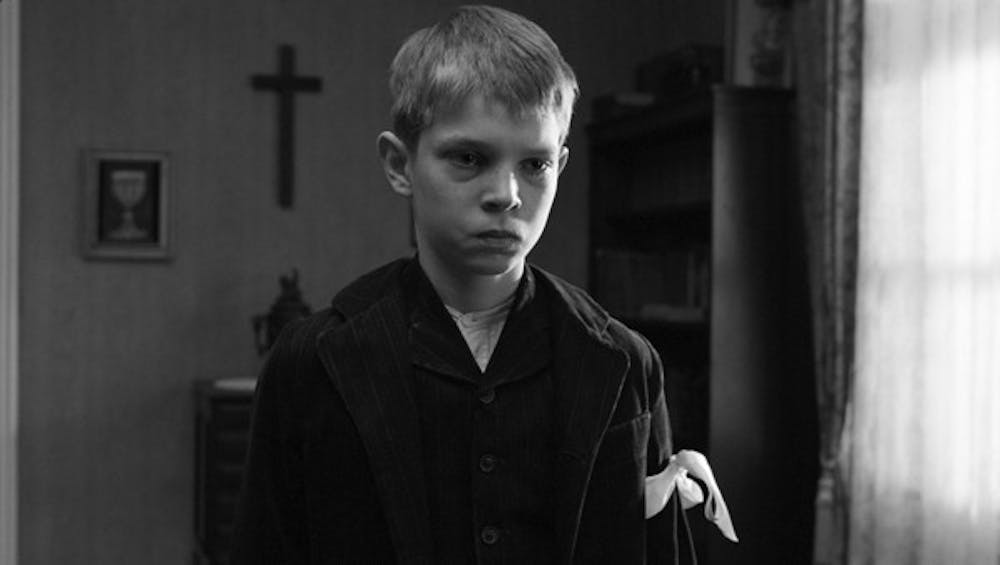Something is amiss in the village of Eichwald, Germany. A series of “accidents” begin to occur: a barn catches fire, a hidden wire trips a horse and its rider and a woman falls through a rotten floor to her death. And as the townspeople contemplate these events, more pointed acts of violence soon follow, culminating in the brutal murder of a child. However, the perpetrator continues to remain elusive, creating an atmosphere of deep unrest in the town.
The White Ribbon is first presented as a mystery. Its narrator, a schoolteacher, recalls everything that has happened and his attempts to find the culprit. The audience obviously expects to find closure — a guilty man who can be removed from society, restoring normalcy. Yet we soon come to realize that the film is far more interested in the consequences of the unsettling acts. As fear escalates, anger and distrust slowly corrode the very fabric of the society itself.
At two and a half hours, the film takes its time portraying the town’s inhabitants. We are intimately introduced to many families of the village, each more disturbing than the last. We witness outright misogyny, incest and beatings — byproducts of a feudal and patriarchal society. The film’s title refers to an object that unruly children must wear if they misbehave, for it symbolizes innocence. Yet what meaning does the punishment have when the parents themselves are abusive, when the father who ties the ribbon on his son’s arm also binds his hands at night to prevent masturbation?
The narrative is set in the weeks leading up to the first World War. Naturally, we are aware that in twenty years most of the children portrayed on screen will become Nazis. Yet director Michael Haneke has crafted much more than a work exploring the origins of German fascism. The film's silvery palate and deliberate camerawork make this particular village canonical, representative of the entire human condition. You may not agree with Haneke’s bleak worldview, yet his warnings about the effects of social repression should not go unheeded.
4.5 stars Directed by: Michael Haneke Starring: Christian Friedel, Leonie Benesch Rated R, 145 min.







